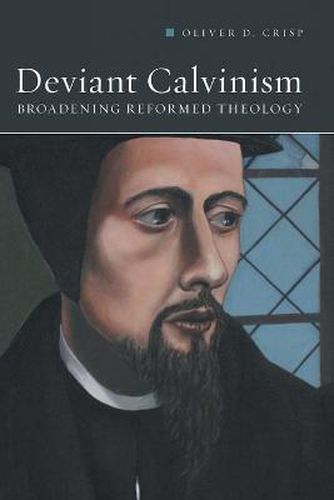Readings Newsletter
Become a Readings Member to make your shopping experience even easier.
Sign in or sign up for free!
You’re not far away from qualifying for FREE standard shipping within Australia
You’ve qualified for FREE standard shipping within Australia
The cart is loading…






Deviant Calvinism seeks to show that the Reformed tradition is much broader and more variegated than is often thought. Crisp’s work focuses on a cluster of theological issues concerning the scope of salvation and shows that there are important ways in which current theological discussion of these topics can be usefully resourced by attention to theologians of the past. The scope of atonement, in particular, is once again a hot topic in current evangelical theology. This volume addresses that issue via discussion of eternal justification, whether Calvinists can be free-will libertarians (like Arminian theologians); whether the Reformed should be universalists, and if they are not, why not; whether Reformed theology is consistent with a universal atonement; and whether the hypothetical universalism of some Calvinists is actually as eccentric and strange a doctrine as is sometimes thought. This book contributes to theological retrieval within the Reformed tradition, and establishes a wider path to thinking Calvinism differently.
$9.00 standard shipping within Australia
FREE standard shipping within Australia for orders over $100.00
Express & International shipping calculated at checkout
Deviant Calvinism seeks to show that the Reformed tradition is much broader and more variegated than is often thought. Crisp’s work focuses on a cluster of theological issues concerning the scope of salvation and shows that there are important ways in which current theological discussion of these topics can be usefully resourced by attention to theologians of the past. The scope of atonement, in particular, is once again a hot topic in current evangelical theology. This volume addresses that issue via discussion of eternal justification, whether Calvinists can be free-will libertarians (like Arminian theologians); whether the Reformed should be universalists, and if they are not, why not; whether Reformed theology is consistent with a universal atonement; and whether the hypothetical universalism of some Calvinists is actually as eccentric and strange a doctrine as is sometimes thought. This book contributes to theological retrieval within the Reformed tradition, and establishes a wider path to thinking Calvinism differently.